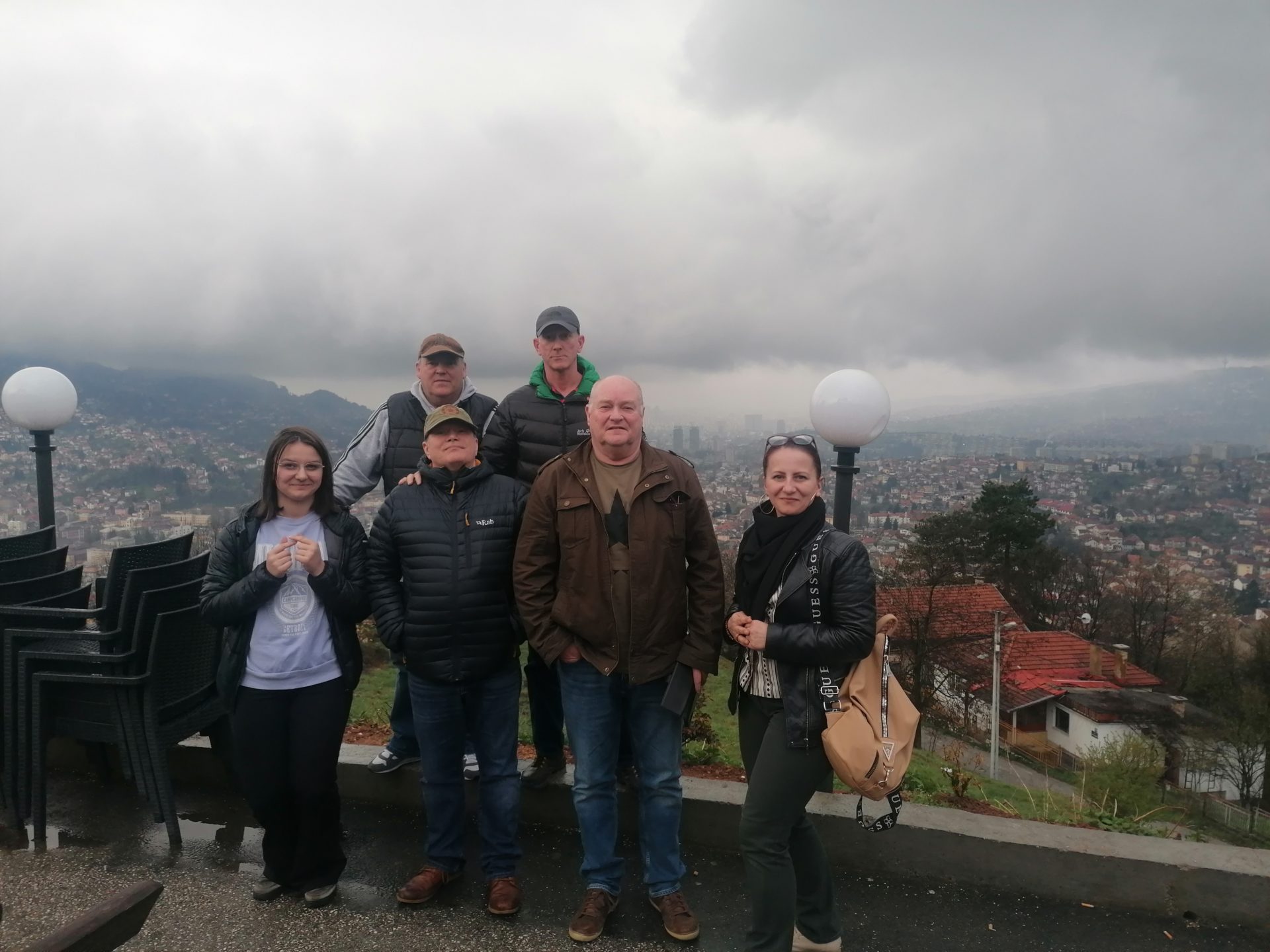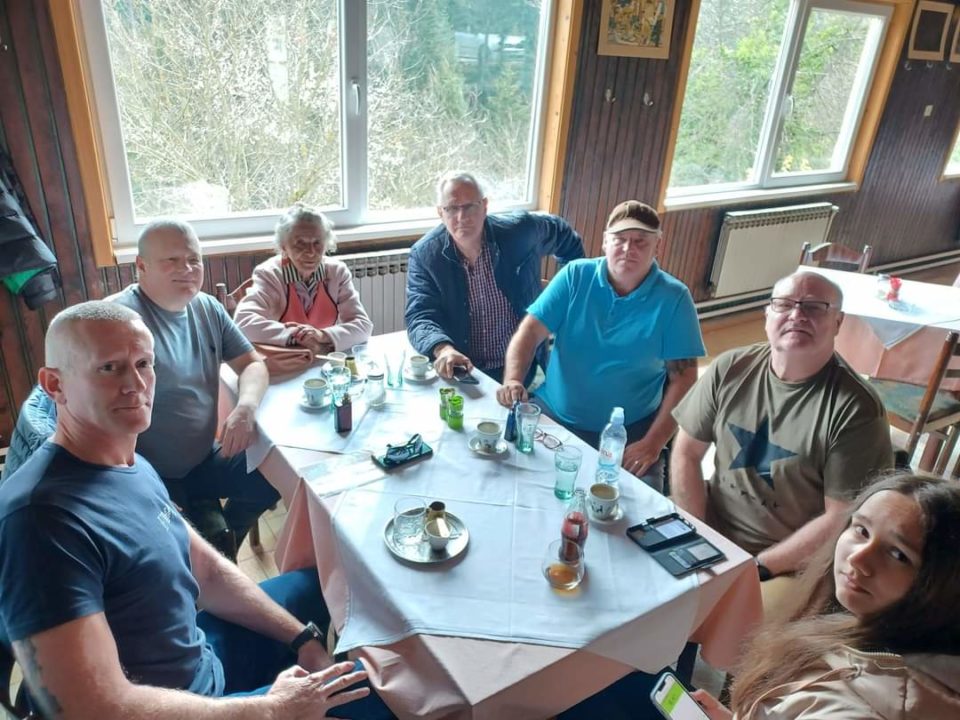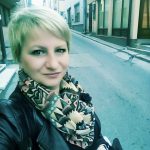
A cold March morning in 1993 left a permanent mark on the lives of children from the village of Srmać in Kladanj as well as the United Nations (UN) soldiers, who would reunite 30 years later. Their reunion brought back memories of the smiles on the children’s faces because of the sweets and toys they received from the UN soldiers. At the same time, it confirmed that distance and time cannot sever friendships as long as they are built on love and respect.
Jed, Mike, Ian, and Charlie are four former UN soldiers who were on a humanitarian mission in Bosnia and Herzegovina, delivering aid during 1992 and 1993. After three decades, they returned to Bosnia and Herzegovina in April of 2023. Đuldina Kurtović, a former resident of Srmać, spoke with them about their visit, about both the beautiful and difficult memories they shared, as well as about their current views on Bosnia and Herzegovina.
“Some good memories are when we brought a convey of refugees to Tuzla, when we brought some clothing and food to the hospital. Also meeting a large group of kids asking for ‘bon bons’ and chocolate from Kladanj, meeting your mum, Dino, and yourself. Your family. I know you didn’t have much but you shared food and coffee with us. I remember grinding the coffee a few times,” said Charlie, recalling the good moments from the mission in Bosnia and Herzegovina.
His colleague Jed remarks that he has made great friends that he can call his family and he feels welcome when he comes to visit. “Kladanj is a special place for me. It’s the first place we all felt so welcome. We would patrol from Tuzla to Kladanj just to see the kids and drink Bosnian coffee with Dino, Fahira, and the family. Anywhere we went in Kladanj, people would stop to talk and say hi,” added Jed.
A good memory for Ian was staying in Tuzla and getting to know Đuldina and the children, seeing their smiles and watching them play, even if it was in a surreal environment. Spending time with the French Foreign Legion and Egyptian Army was also an interesting experience for him, seeing as he was young, and it was his first operational tour outside of Northern Ireland. Mike also has good memories of Kladanj.

During the visit to this Bosnian and Herzegovinian town, the former UN soldiers talked with their friends Selma, Fahira, Đuldina, Zikret, Dino, Šerif, and many others. They enjoyed delicious traditional Bosnian food and, as they say, “good company.” They also visited the high school in Kladanj, to which Jed made a donation a few years ago. They were impressed by the general knowledge of the English language, especially that of a student named Lamija, who helped them as an interpreter.
“A Weight Lifted Off My Shoulders”
In addition to Kladanj, the former UN soldiers also visited Vitez, where they laid a poppy wreath and paid tribute to the victims of the massacre in the village of Ahmići. “A few tears were shed and I felt a weight I have been carrying for 30 years lifted off my shoulders,” said Mike.
“I always intended to visit Ahmići on the 30th anniversary of the massacre,” said Jed, adding that when he invited the members of his team to come with them, they agreed immediately.
When asked what he remembers about Bosnia and Herzegovina from the war, Ian answered, “We arrived in the winter, and the winding snow-covered roads that stick out the most in my mind. I remember three main time blocks split between Vitez, Tuzla, and Sarajevo. Your mum’s house and all the kids are my most prominent memory of our time in Tuzla.”
On the other hand, Mike admits that he also has bad memories of that time 30 years ago. The war had just started and there was a lot of uncertainty as to how the situation would develop. “It affected my mental health, and Ahmići especially,” added Mike.
Charlie explained that he had been to many places in the 24 years he had been on missions, but he had never seen anything worse than what he saw in the village of Ahmići.
As confirmed by judicial verdicts, on April 16th, 1993, members of the Croatian Defense Council committed war crimes in the village of Ahmići, killing 116 Bosniaks, whose homes they destroyed in addition to the local mosque.
“I remember Bosnia as a beautiful country with very friendly people. Bear in mind, we were most likely the first westerners most had ever seen or spoken to. It was heart breaking to see such violence towards neighbors and friends. It was a tragedy the country fell apart the way it did. It reminded me of my own childhood when Northern Ireland was a troubled place,” said Jed.
Kladanj is the Most Beautiful
The former UN soldiers also visited Sarajevo, where they also stayed during their mission.
“It’s good to see the investment in Sarajevo and how much it has changed. It’s also sad to see the country split into two entities, the Federation of Bosnia and Herzegovina, and Republika Srpska,” said Ian. Nevertheless, he said that the highlight of the visit was definitely not visiting the cities but reuniting with Đuldina and her friends and seeing them all grown up.
Charlie enjoyed the view of Sarajevo from the hilltops, as well as the delicious food he ate in Zmajevac and the Old Town – especially the spicey sausage. “The country has lovely scenery, like the Alps, and I would love to come visit again sometime,” said Charlie.
“It was nice to see the kids that we became friends with,” Mike reiterated, adding that those ‘kids’ are now all grown up and have children of their own. “I had the best time in Kladanj meeting old and new friends. I’m so glad that I came to visit Bosnia again. I feel an internal relief, and wish I had gone back years ago,” explained Mike, noting that he will definitely visit Bosnia and Herzegovina again soon.
Jed also describes Bosnia and Herzegovina as a beautiful country with warm people. “During our stay in Kladanj, we visited so many people and houses. The hospitality shown to us was first class. The food was amazing. After 30 years, the investment in Sarajevo really made an impression on me. There are lovely, modern high-rise buildings, which goes to show that Bosnia is open for business. It shows that the city is growing fast, and there are opportunities for young people,” Jed remarked.
He also acknowledges the effect of this progress on small towns like Kladanj. “There’s very few jobs or opportunities, so the young people move to the city, much the same as in any modern society,” added Jed.
After talking with the former UN soldiers, the author of this article, Đuldina Kurtović, stated that she had only one thing in mind, a quote from Mesa Selimović, a famous writer and thinker from Bosnia and Herzegovina: “I value new friendships, they are the love we always need, but old friendships are more than love, because they are a part of our selves.”






